As the school year comes to a close, families eagerly anticipate the long, lazy days of summer; it’s a time for relaxation, outdoor activities, and family fun. However, the transition from structured school days to a more flexible summer schedule can sometimes lead to a regression in academic skills for children. This doesn’t have to be the case! With a little planning and the right tools, parents can help their children prevent academic regression and maintain or even enhance their skills over the summer break, ensuring they return to school ready to succeed. Here are some strategies that can help.
1. Incorporate Learning into Daily Activities
One of the best ways of preventing academic regression during the summer months is to weave learning opportunities into everyday activities. Here are a few ideas:
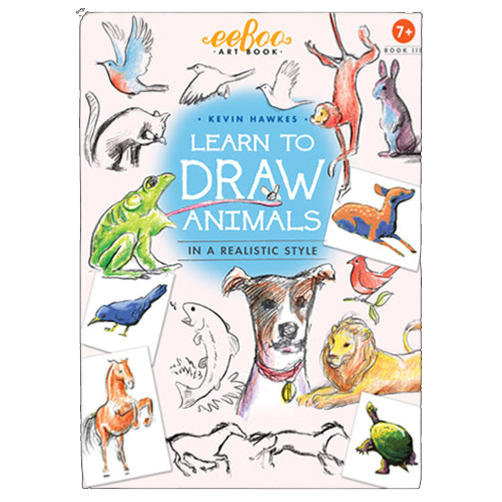
Outdoor Exploration: Nature walks can turn into science lessons. Encourage children to observe and discuss plants, animals, and insects they find. To make critter discoveries even more exciting and educational, check out the Learn to Draw Animals book. Recommended for children age 7+, your budding artist will work on fine motor skills, spatial awareness, and have fun while expressing creativity.
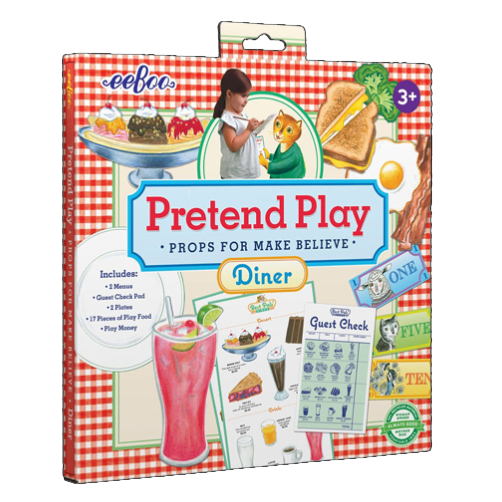
Picnics: Enjoy a picnic rain or shine with Best Pals’ Diner Pretend Play. Children will love pretending to have an outdoor dining experience using guest checks, play money, food and beverage choices. Add your own play food for an imaginative new restaurant in your backyard! This activity fosters executive function, creativity, and social interaction, a perfect activity for preventing academic regression this summer.
Cooking and Baking: These activities are not only fun but also educational. Measuring ingredients can help with math skills, following recipes can enhance reading and comprehension, and discussing the process can boost language development. Make pretend food preparation more engaging with Scented Dazzlin’ Dough, which offers a variety of vibrant colored modeling dough that is scented. The resistive dough will strengthen fingers as the children mold “food”. Use cookie cutters to “bake” creative play cookies.
For hands-on cooking experiences with an adult supervising, Stepwise Breakfast and Lunch Cookbooks provide simple esteem-building activities that help children of varying abilities and ages experience cooking. The cooking instructions are arranged with one task per page and are clearly illustrated.
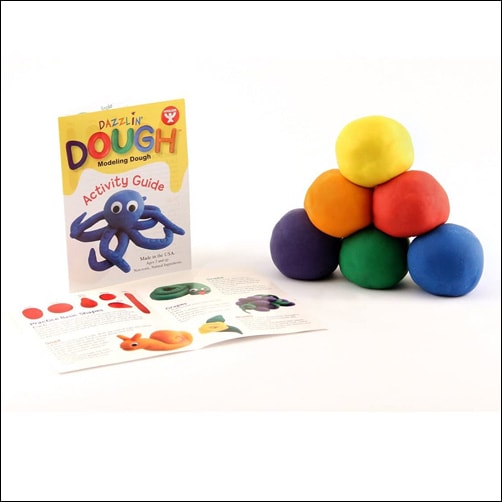
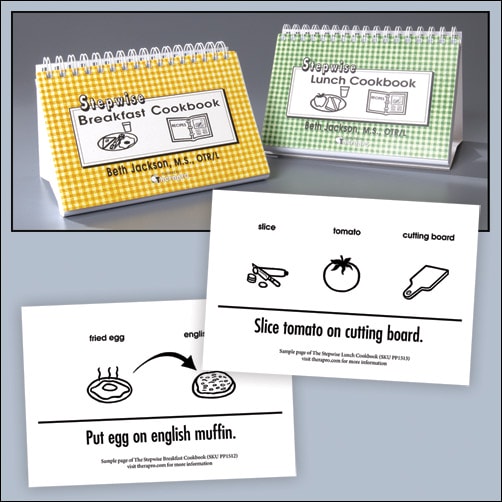
2. Maintain a Routine
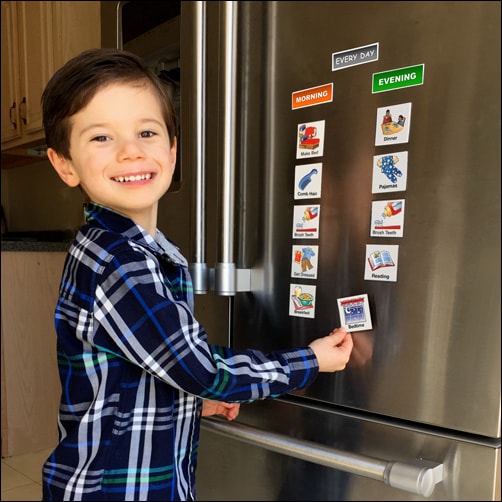
Keeping a consistent routine helps children feel secure and can make the transition back to school smoother. A daily schedule that includes time for reading, playing, and structured activities can help maintain the rhythm of learning. Try the SchKIDules Home Collection Combo Pack to help children understand and follow their summer routines. The 72, 2×2 inch pieces are magnetic and laminated. The SchKIDules Sensory Expansion Pack includes 12 activities such as swing, tunnel, chewing, etc. that can be added to the child’s daily routine.
3. Engage in Sensory Activities
Sensory play is not only fun but also crucial for development. It can help with sensory processing skills, fine motor skills, and even emotional regulation; essential components for academic success and perfect for preventing academic regression this summer. Here are a few suggestions:
Sensory Play: Fill bins with rice, dry beans, or sand and hide small toys or letters for children to find. Children love the Mini Animal Assortments; they are an inch or smaller and promote a pincer grasp. Choose Farm Animals, Sea Life Animals, and Wild Animals with 16 animals in each set, or choose an assortment of animals with 12 pieces. This activity can help with tactile processing and fine motor skills, sorting, and verbalization skills. You can add more fine motor skill work by using Gator Grabber Tweezers (ages 2+) that come in a set of 12. For success, the child must use a thumb/index finger grasp to squeeze the tweezer to pick up an object.
Sensory On the Go Camping Fun is designed for the preschool-age child to explore all of their senses, with a camping theme. The child employs fine motor skills and imaginative play in a way that will capture their interest. Parents love the “take-along” feature of this toy that comes with a handy, sturdy carry case that goes into the car, to the park, or to grandma’s house.

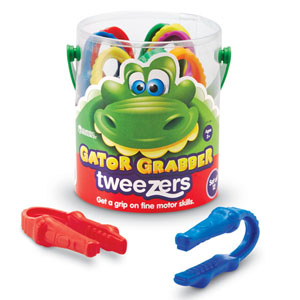

4. Promote Physical Activity
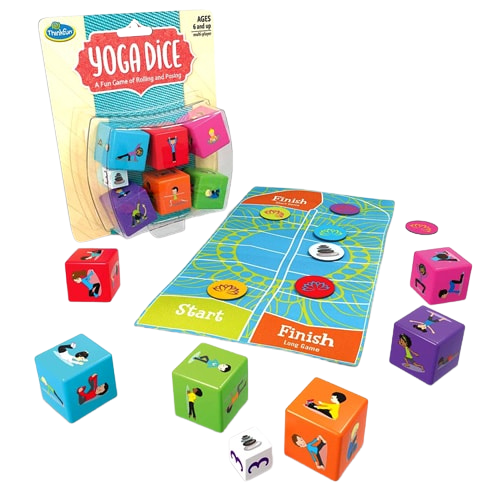
Physical activity is essential for overall health and can also support academic skills by improving focus and reducing stress. Encourage outdoor play, sports, and exercises that children enjoy. Products like the Yoga Dice: A Fun Game of Rolling and Posing can provide both fun and physical exercise for children ages 6 and older. This movement game helps children try out 36 yoga poses. It is a great game for facilitating motor planning and focus of attention!
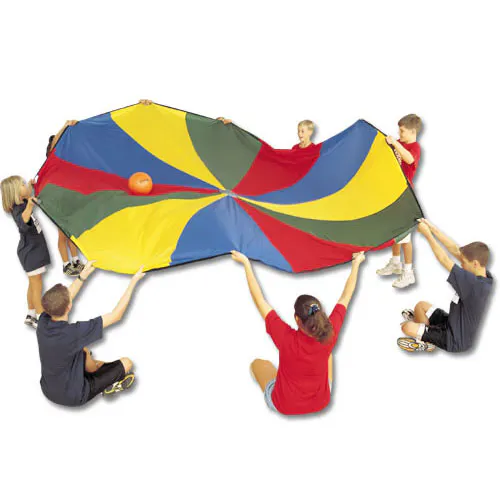
Parachute activities bring group giggles and fun! All you need is a colorful parachute and a lightweight ball, like a beach ball or foam ball. The adult leader can direct movements to increase shoulder range of motion (“big up/down”, “little up/down or shake”), strength and stability; facilitate gross motor transitions (“bring the parachute to the ground and now stand up again”); and improve focus of attention and following directions. The ball on the parachute bounces on top as the movement of the children directs its course. Don’t let the ball fly out of the parachute!
5. Encourage Reading and Storytelling
Reading is one of the most effective ways to prevent academic regression. Create a summer reading challenge with rewards for completing books. Encourage storytelling and creative writing to further enhance language skills.
Books: Therapro offers a variety of books that can make reading more interactive and engaging. Consider the Interactive Reading Books series, which includes books designed to develop vocabulary, sequencing, and comprehension skills. With these books the child begins with matching, identifying, and labeling of objects. Next, the child reads the sentences with pictures, then without pictures and in random order. Meet the Word Family and Who’s on First? are 2 books in the series that work on pre-reading skills, taking children through sequential steps until they are reading words without pictures.
Library: Make going to the local library a special activity. If your child doesn’t have one, sign up for a library card. Exploring all kinds of books will help your child develop a love of reading. Most local libraries also offer free activities in the summer where your child can join other children for fun reading-related fun! These activities encourage active listening, turn-taking, and focus.
6. Keep it Fun
Most importantly, ensure that learning activities are fun and not seen as a chore. Mixing educational tasks with enjoyable activities will keep children engaged and motivated.
Ending the school year on a high note and transitioning into a summer of fun and learning is possible with a bit of planning and the right tools. By incorporating Therapro products into your summer activities, you can help prevent academic regression and ensure your children are ready for the new school year. Enjoy the summer, stay engaged, and make the most of this special time with your children!
For more ideas and products to support summer learning, visit Therapro. Let’s make this summer one of growth, fun, and unforgettable memories!
Guest Blogger: Filomena Connor, MSOT-Retired
